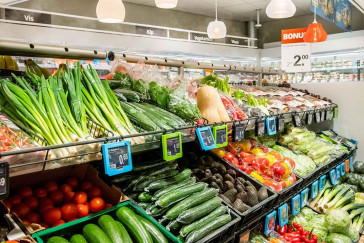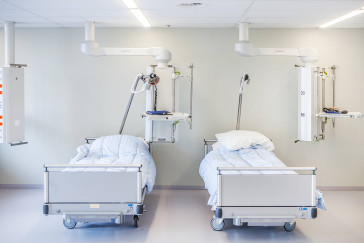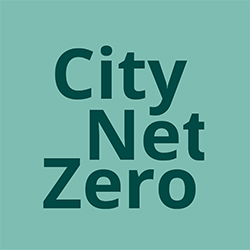‘Creating the Difference’ is the theme of the 2014 edition of the Chi Sparks conference. It is also the challenge that the Human-Computer Interaction (HCI) community is facing today. HCI is a creative field where practitioners engage in design, production, and evaluation of interactions between people and digital technology. Creating excellent interfaces for people, they make a difference in media and systems that people are eager to use. Usability and user experience are fundamental for achieving this, as are abilities at the forefront of technology, but key to a successful difference is getting the right concepts, addressing genuine, intrinsic, human needs. Researchers and practitioners contribute to this area from theory as well as practice by sharing, discussing, and demonstrating new ideas and developments. This is how HCI creates a difference for society, for individuals, businesses, education, and organizations. The difference that an interactive product or service makes might lie in the concept of it but also in the making, the creation of details and the realisation. It is through powerful concepts and exceptional quality of realisation that innovation is truly achieved. At the Chi Sparks 2014 conference, researchers and practitioners in the HCI community convene to share and discuss their efforts on researching and developing methods, techniques, products, and services that enable people to have better interactions with systems and other people. The conference is hosted at The Hague University of Applied Sciences, and proudly built upon the previous conferences in Arnhem (2011) and Leiden (2009). Copyright van de individuele papers ligt bij de betreffende auteurs.
DOCUMENT

In this paper we discuss the general approach and choices we made in developing a prototype of a social media monitor. The main goal of the museum monitor is to offer museum professionals and researchers better insight in the effects of their own social media usage and compare this with other actors in the cultural heritage sector. It gives researchers the opportunity to consider communication within the sector as whole. In the research project “Museum Compass” we have developed a prototype of a social media monitor, which contains data of current and historic online activities on Facebook, Twitter, YouTube, Foursquare and Flickr of all registered Dutch museums. We discuss – mostly in a practical sense – our approach for developing the monitor and give a few examples as a result of its usage.
DOCUMENT

In order to empower more people to become more selfreliant in society, interactive products and services should better match the skills and values of diverse user groups. In inclusive design, relevant end-user groups are involved early on and throughout the design and development process, leading to a better user experience. However, for IT businesses not operating in the academic domain, getting access to appropriate user research methods is difficult. This paper describes the design and prototype development of the Include Toolbox, in close cooperation with practitioners of small to medium sized enterprises (SMEs) in IT. It consists of an interactive app paired with a book. The app helps to find suitable research methods for diverse user groups such as older people, people with low literacy, and children. The book offers background information on the advantages of inclusive design, information on different user groups, and best practices shared by other companies.
DOCUMENT

Mensen die moeite hebben met lezen en schrijven (laaggeletterden) zijn ondervertegenwoordigd in onderzoek, waardoor een belangrijke onderzoekspopulatie ontbreekt. Dit is een probleem, omdat zorgbeleid dan onvoldoende op hun behoeften wordt aangepast. Laaggeletterden hebben vaak een lage sociaal economische positie (SEP). Mensen met een lage SEP leven gemiddeld 4 jaar korter en 15 jaar in minder goed ervaren gezondheid vergeleken met mensen met een hoge SEP. Om laaggeletterden te betrekken in onderzoek, is het o.a. nodig om onderzoek toegankelijker te maken. Dit project draagt hieraan bij door de ontwikkeling van een toolbox voor toegankelijke (proefpersonen)informatie (pif) en toestemmingsverklaringen. We ontwikkelen in co-creatie met de doelgroep toegankelijke audiovisuele materialen die breed ingezet kunnen worden door (gezondheids)onderzoekers van (zorggerelateerde) instanties/bedrijven én kennisinstellingen voor de werving voor en informatieverstrekking over onderzoek. In de multidisciplinaire samenwerking met onze partners YURR.studio, Pharos, Stichting ABC, Stichting Crowdience, de HAN-Sterkplaats en de Academische Werkplaats Sterker op eigen benen (AW-SOEB) van Radboudumc stellen we de behoeften van de doelgroep centraal. Middels creatieve sessies en gebruikerservaringen wordt in een iteratief ontwerpende onderzoeksaanpak toegewerkt naar diverse ontwerpen van informatiebrieven en toestemmingsverklaringen, waarbij de visuele communicatie dragend is. Het ontwikkelproces biedt kennisontwikkeling en hands-on praktijkvoorbeelden voor designers en grafisch vormgevers in het toegankelijk maken van informatie. Als laaggeletterden beter bereikt worden d.m.v. de pif-toolbox, kunnen de inzichten van deze groep worden meegenomen. Dit zorgt voor een minder scheef beeld in onderzoek, waardoor (gezondheids)beleid zich beter kan richten op kwetsbare doelgroepen. Hiermee wordt een bijdrage geleverd aan het verkleinen van gezondheidsverschillen.
Uit cijfers van het CBS zien we dat de vraag naar biologische producten achterblijft. De meerprijs die consumenten moeten neerleggen voor biologische productalternatieven blijkt een belangrijke belemmering te zijn voor de overstap naar biologisch. Hoe kunnen we deze gepercipieerde prijsbarrière bij de consument overkomen?

Veel ouderen ervaren tijdens en na ziekenhuisopname functieverlies. ‘Function Focused Care in Hospital’, ook wel bekend als bewegingsgerichte zorg, is een interventie gericht op het voorkomen en verminderen van functieverlies bij ouderen tijdens een ziekenhuisopname. Verpleegkundigen moedigen patiënten aan tot actieve betrokkenheid in de dagelijkse zorgmomenten.

Centre of Expertise, onderdeel van Zuyd Hogeschool

Centre of Expertise, onderdeel van Hogeschool van Amsterdam
